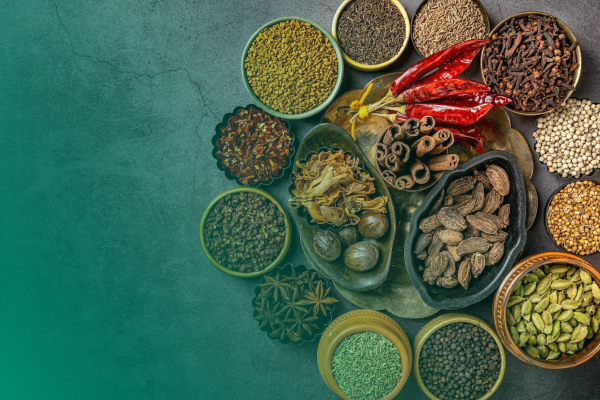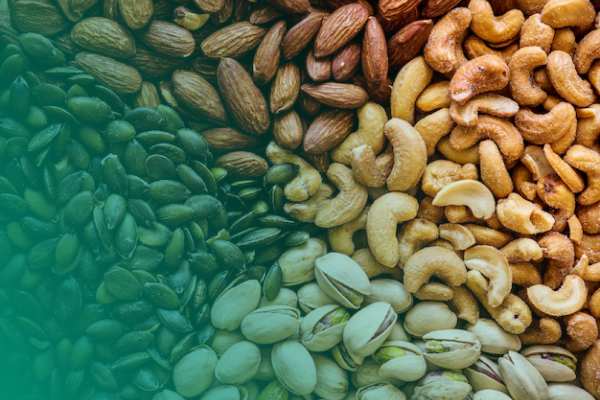Seeds, the tiny powerhouses of nature, have been a staple in human diets for thousands of years. Packed with essential nutrients, seeds offer a wealth of health benefits that can enhance our overall well-being. In this blog, we'll delve into the nutritional marvels of seeds, understand their role in supporting a healthy lifestyle, and explore creative ways to incorporate them into our daily meals.
The Nutritional Marvels of Seeds: Despite their small size, seeds are abundant in essential nutrients. They are rich sources of protein, healthy fats, dietary fiber, vitamins, and minerals. From omega-3 fatty acids in chia seeds to iron and magnesium in pumpkin seeds, these nutritional gems contribute to various bodily functions, supporting heart health, brain function, and bone strength.
Promoting Heart Health: Seeds like flaxseeds and sunflower seeds contain heart-friendly compounds like alpha-linolenic acid (ALA) and vitamin E, which can help reduce inflammation, lower cholesterol levels, and maintain healthy blood pressure. Including seeds in your diet may significantly contribute to cardiovascular well-being.
Digestive Health and Fiber: Seeds are an excellent source of dietary fiber, which aids in digestion, promotes bowel regularity, and supports a healthy gut microbiome. The soluble fiber found in seeds like psyllium can be particularly beneficial for easing digestive discomfort and maintaining colon health.
Managing Blood Sugar Levels: For individuals with diabetes or those seeking to manage blood sugar levels, seeds such as fenugreek and chia seeds may prove beneficial. The soluble fiber and alpha-linolenic acid in these seeds can help improve insulin sensitivity and regulate blood glucose levels.
Brain-Boosting Properties: Certain seeds, such as walnuts and pumpkin seeds, contain brain-boosting nutrients like omega-3 fatty acids, antioxidants, and vitamin E. These compounds contribute to cognitive function, memory retention, and overall brain health, making seeds a smart addition to your diet.
Versatile Culinary Uses: Seeds' versatility makes them easy to incorporate into various culinary creations. Sprinkle flaxseeds or hemp seeds onto your morning cereal, blend chia seeds into smoothies for added thickness, or toss sesame seeds over salads for a delightful crunch. Seeds can also be used to create delicious energy bars, granolas, and even homemade nut butter blends.
A Word of Caution - Allergens: While seeds offer numerous health benefits, it's important to be mindful of potential allergens. Some individuals may have allergies to certain seeds, such as sesame seeds or sunflower seeds. If you have known allergies or sensitivities, always read labels and consult with a healthcare professional before incorporating new seeds into your diet.
Conclusion: Seeds are truly the seeds of growth for a healthy and fulfilling lifestyle. Bursting with vital nutrients and offering an array of health benefits, they hold a special place in a balanced diet. Embrace the variety of seeds available, experiment with different culinary uses, and enjoy the nourishing goodness they bring to your meals.
From promoting heart health to supporting brain function, seeds are nature's gifts that can nurture our bodies and contribute to our overall well-being. So, sow the seeds of health, and watch them bloom into a vibrant and thriving you. Despite their small size, seeds are abundant in essential nutrients.
They are rich sources of protein, healthy fats, dietary fiber, vitamins, and minerals. From omega-3 fatty acids in chia seeds to iron and magnesium in pumpkin seeds, these nutritional gems contribute to various bodily functions, supporting heart health, brain function, and bone strength.
While seeds offer numerous health benefits, it's important to be mindful of potential allergens. Some individuals may have allergies to certain seeds, such as sesame seeds or sunflower seeds. If you have known allergies or sensitivities, always read labels and consult with a healthcare professional before incorporating new seeds into your diet.
Tags:seeds








